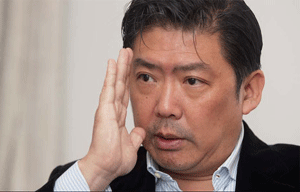Driving force
Updated: 2011-10-07 10:15
By Zhong Nan and Ding Zhongxin (China Daily)
|
|||||||||
|
|
Foreign tire-makers move into china after public shows a lack of trust in domestic products
Last year, more than 43 percent of highway crashes, casualties and accidents in China were blamed on shoddy tires, the majority of them manufactured in China.
| ||||
After last year's damning report linking Chinese-made tires to highway crashes by the Institute of Transportation Research of the National Development and Reform Commission, six medium- to large-sized Chinese tire-makers went bankrupt. South Korean companies such as Kumho Tires recalled all their tires in China and Chinese authorities warned Hankook Tire that its tires were not up to snuff, according to officials at the China Rubber Industry Association.
But while the report took its toll on Chinese tire-makers, it has flung open the door for European and US tire companies, many of whom had previously concentrated only on their own markets.
As a result, European tire producers are making a bigger push to sell more tires in China. Companies such as France's Michelin Group and Germany's Continental AG are building factories and deploying management teams to China in a bid to sell more high-end tires.
With that push, they are bringing in higher quality control, innovation and environmentally friendly technologies to a nation that generated 6.6 billion euros ($8.8 billion) in tire sales in 2010.
"Fast wealth growth, safety concerns and changing lifestyles in China have significantly enlarged the desire for high-quality products," says Yves Chapot, president of Michelin (China) Investment Co Ltd. "We have brought our latest tires to the market this year, which are more durable and substantial in dealing with various conditions on Chinese roads."
Emerging economies such as India, Brazil and especially China have become fast growing markets for carmakers such as Volkswagen, BMW, Mercedes-Benz, General Motors and Toyota. In China, with personal wealth growing and the auto market steadily growing (despite a sales lull this year), the largest vehicle market in the world is attracting a number of tire-makers in Europe.
"Michelin used to invest between 65 and 75 percent of its annual investment in developed markets every year. But the company now has shifted its investment direction to China," says Claire Clauzel, director of communication and brands at Michelin Group.
The French company has invested 1.4 billion euros this year to establish a new manufacturing facility in Shenyang, Liaoning province, to produce tires for cars and trucks. The plant is expected to be operational in 2015. The company also plans to expand its retail network for vehicle tires in China, which currently has more than 3,000 dealerships across the country.
Chapot says Michelin is also supplying radial tires for the C919, the first commercial airliner to be designed in China by Commercial Aircraft Corporation of China Ltd. It will be Michelin's first venture into producing airplane tires for a Chinese airliner.
Another European tire-maker, Germany's Continental Tire, is also playing up the trump card of "safer tires" in China's high-end market.
"Our technologies of tire safety, precise handling response and high resistance against aquaplaning in wet conditions, the reduction of driving noise and rolling resistance give us the upper hand to attract high-income consumers," says Yuan Jiying, communications manager for Continental Tire (China) Co Ltd.
"Rising safety awareness opens the door for high-quality tires," Yuan says.
This year, Continental Tire sold more than a million passenger car tires in China and opened its first Chinese plant in Hefei, Anhui province, with 185 million euros to produce passenger car tires.
And it seems that Chinese consumers are buying into the marketing. A 2010 market survey of 2,400 car owners by the China Rubber Industry Association showed that 64 percent of car owners prefer purchasing European, Japanese and US tires in Shanghai.
Another European tire-maker, Sweden's Trelleborg AB has also targeted China as its top priority market. The company has invested in a new production facility in Hebei province this year and has focused on selling tires to China's engineering, heavy and agricultural vehicle markets.
"By the end of 2012, we will be able to supply tires for any kind of tractor produced in China and tires for implement or harvesting machines. We are also developing a new line of pneumatic industrial tire, agricultural industrial tire and backhoe tire," says Paolo Pompei, president of the agricultural and forestry tires unit at Trelleborg AB. "Despite the higher prices, compared to Chinese tires, the benefits our consumers get from our products could support an easy payback in their financial portfolio."
Pompei says China's tires are inadequate because China has not put in place a system to set quality standards for tires. Without it, Chinese tire-makers have gained a far smaller market share than their European competitors.
"Chinese tire-makers are focusing on regular regional sales and making copies from well-known foreign brands, most of them don't have long-term development strategy. They should turn around and invest more in high-traction, long-life and high value-added products," says Sun Fuquan, a researcher at the Chinese Academy of Science and Technology for Development.
Sun says Chinese tire-makers need time to catch up to the latest technologies in high-end tires, something European manufacturers have concentrated on for years.
Wang Yiyi, associate researcher at China National Institute of Standardization, says European tire-makers possess sophisticated technologies in improving the quality of tires in terms of safety and energy-efficiency. Wang says they have better knowledge in setting long-term product targets for energy, material and chemical use even though their prices are higher than local tires.
"So, it won't be easy for Chinese tire-makers to take a leading role from foreign hands within a short term. They have to work hard, extremely hard," Wang says.











